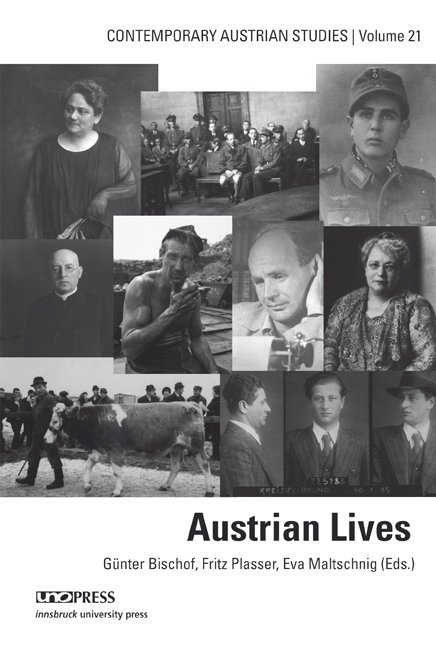Volume 21: Austrian Lives
Writing biographies for a long time had been a male hegemonic project. Ever since Plutarch and Sueton composed their vitae of the greats of classical antiquity, to the medieval obsession with the hagiographies of holy men (and a few women) and saints, Vasari’s lives of great Renaissance artists, down to the French encyclopedists, Dr. Johnson and Lytton Strachey, as well as Ranke and Droysen the genre of biographical writing has become increasingly more refined. In the twentieth century male predominance has become contested and the (collective) lives of women, minorities and ordinary people are now the focus of biographical writing.
This volume of Contemporary Austrian Studies offers a cross-section of Austrian lives and biographical approaches to recent Austrian history. Here are what may be called traditional biographies of leading political figures through the twentieth century. We also suggest that the intellectual biographies of thinkers and professionals are fertile soil for biographical study.
Moreover, the prosopographical study of common folks in the Austrian population lifts these lives from the dark matter of anonymous masses and gives rich insight into the lives that ordinary Austrians have been leading. We present an array of political lives, including that of Ignaz Seipel and Therese Schlesinger-Eckstein, as well as “Lives of the Mind” which capture the lives of fascinating intellectual figures in pre- and post-World War II Vienna such as Viktor Frankl and Eugenie Schwarzwald. The approaches to writing biography taken in this volume also suggest that much work needs to be done to shed light on the lives of ordinary Austrians. In this volume we have biographical accounts detailing the lives of soldiers, prisoners of war, and farming families.
The writing of lives is always situated between fact and fiction, ascertainable data and the imagination of the biographer. This volume of Austrian Lives offers an intimate look into the lives of intriguing individuals while illuminating the touching lives of ordinary Austrians in wartime Vienna.

